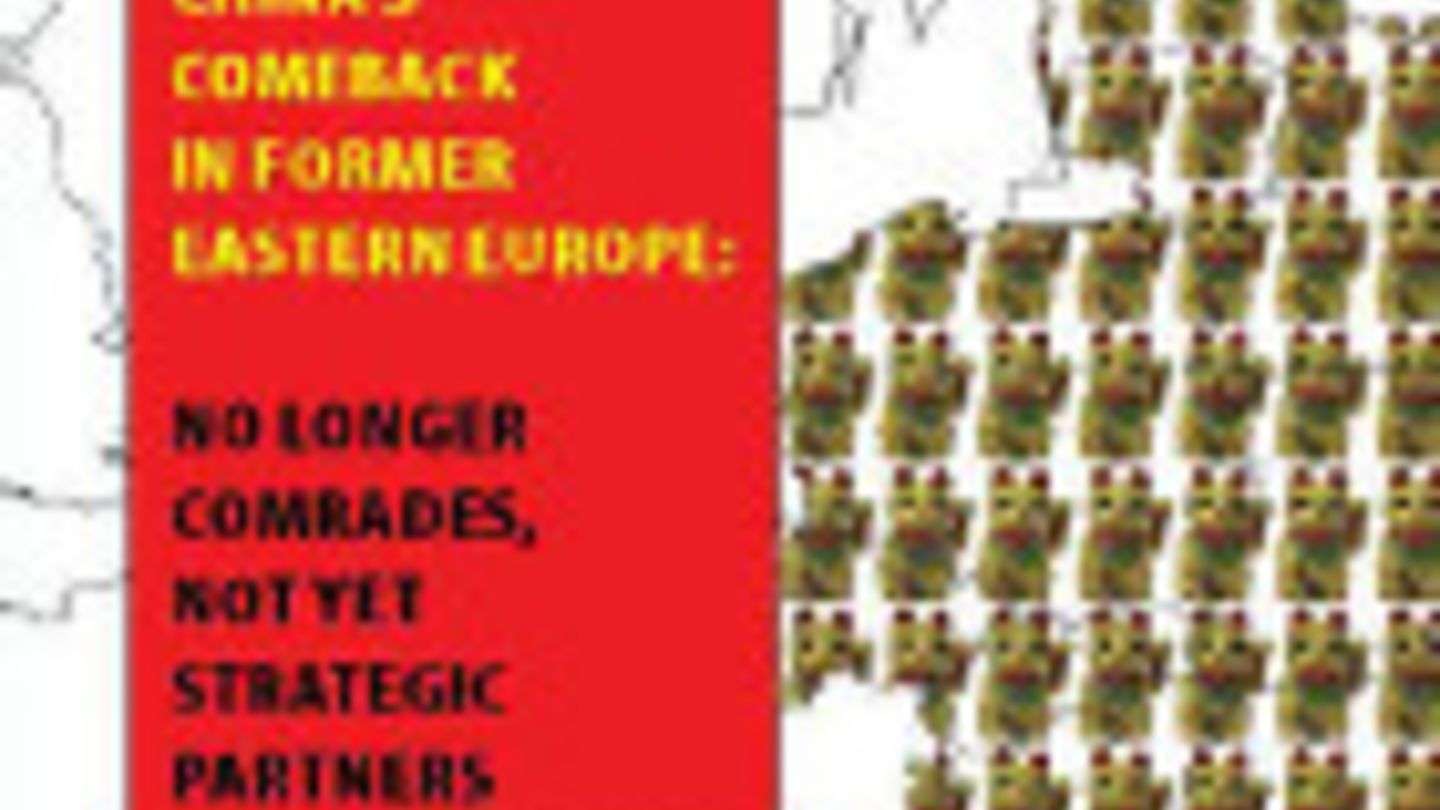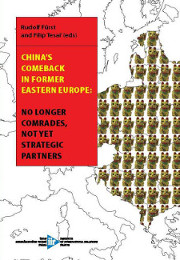Free Access to "China’s Comeback in Former Eastern Europe"

You can now freely access the book "China’s Comeback in Former Eastern Europe: No Longer Comrades, Not Yet Strategic Partners" co-edited by our researcher and specialist on China Rudolf Fürst.
Rudolf Fürst and Filip Tesař (eds): "Chinaʼs dialogue with the seeming 'B-grade group' of the 16 postcommunist states inside the EU perhaps cannot evolve into the kind of sophisticated sectoral dialogue with China that already exists on the EU-PRC partnership level; but still, their new 1+16 format for better ties with China is a new opportunity."
 The process of post-communist transformation in the former Eastern Europe as well as in China definitely ended the quasi-ideological ties between the two sides that were based in their previously existing non-coherent and doctrinaire “comradeship”, and eventually opened up for them a new postideological era of more truly defined relations which lie primarily in national material interests. The growing mutual economic relevance of the two sides has been the common ground for the building of the new post-communist ties between China and the CEE countries, and the later emerging political dimension of the ties followed as a secondary effect of and also as a reaction to the EU’s eastern expansion. Chinaʼs dialogue with the seeming “B-grade group” of the 16 postcommunist states inside the EU perhaps cannot evolve into the kind of sophisticated sectoral dialogue with China that already exists on the EU-PRC partnership level; but still, their new 1+16 format for better ties with China is a new opportunity. In China the European post-communist transformation was under-researched and ideologized, and thus, the diversity and value of the non-western European regions may receive a new review and a new appreciation from China.
The process of post-communist transformation in the former Eastern Europe as well as in China definitely ended the quasi-ideological ties between the two sides that were based in their previously existing non-coherent and doctrinaire “comradeship”, and eventually opened up for them a new postideological era of more truly defined relations which lie primarily in national material interests. The growing mutual economic relevance of the two sides has been the common ground for the building of the new post-communist ties between China and the CEE countries, and the later emerging political dimension of the ties followed as a secondary effect of and also as a reaction to the EU’s eastern expansion. Chinaʼs dialogue with the seeming “B-grade group” of the 16 postcommunist states inside the EU perhaps cannot evolve into the kind of sophisticated sectoral dialogue with China that already exists on the EU-PRC partnership level; but still, their new 1+16 format for better ties with China is a new opportunity. In China the European post-communist transformation was under-researched and ideologized, and thus, the diversity and value of the non-western European regions may receive a new review and a new appreciation from China.
Preface: China Creating an Additional Strategic Partnership with the Post-Communist Part of Europe?
Rudolf Fürst
Part I: The Visegrad Four and the Baltic States: Prominent Actors and Hesitators
- Poland and China: a Strategic Partnership in the Making?
Justyna Szczudlik-Tatar
- The Slovak and Hungarian Partnerships with China: High Hopes that Did Not Come True
Gabriela Pleschová
- The Czech Experience with Relations with China: Nothing to Win, Nothing to Lose
Rudolf Fürst
- The Baltic States: Lithuania, Latvia and Estonia: Coming Out of the Shadow
Rudolf Fürst
Part II: The Balkans Revisited: The Chinese South-Eastern Hub in Europe
Filip Tesař
- China and South-Eastern Europe: Introduction
- Traditional Allies: Bulgaria, Romania and Albania
- Strategic Transit: Greece and Serbia
- Serbian Forelands: Montenegro and Bosnia-Herzegovina
- An Unreliable Terrain: Macedonia and Kosovo
- A Secondary Branch? Slovenia and Croatia
- Conclusion: Strategic Pragmatism instead of Strategic Friendship
Part III: Eastern Periphery of EU: Ukraine, Belarus and Moldova
Karel Svoboda
- Introduction: Chinese Relations with Ukraine, Belarus and Moldova
- A Way of Crisis? Chinese-Ukrainian Relations
- China-Belarus Relations: A Better Friend for Lukashenko
- China and Moldova: Giant and the Dwarf
You can download the full book here.
Rudolf Fürst is Senior Researcher at the IIR. Among his research interests are China, Far East, Czech-Chinese relations, EU-Chinese relations, relations of Central and Eastern Europe with China, Postcommunist transformation in Eastern Europe and East Asia and Soft power in East-West relations.